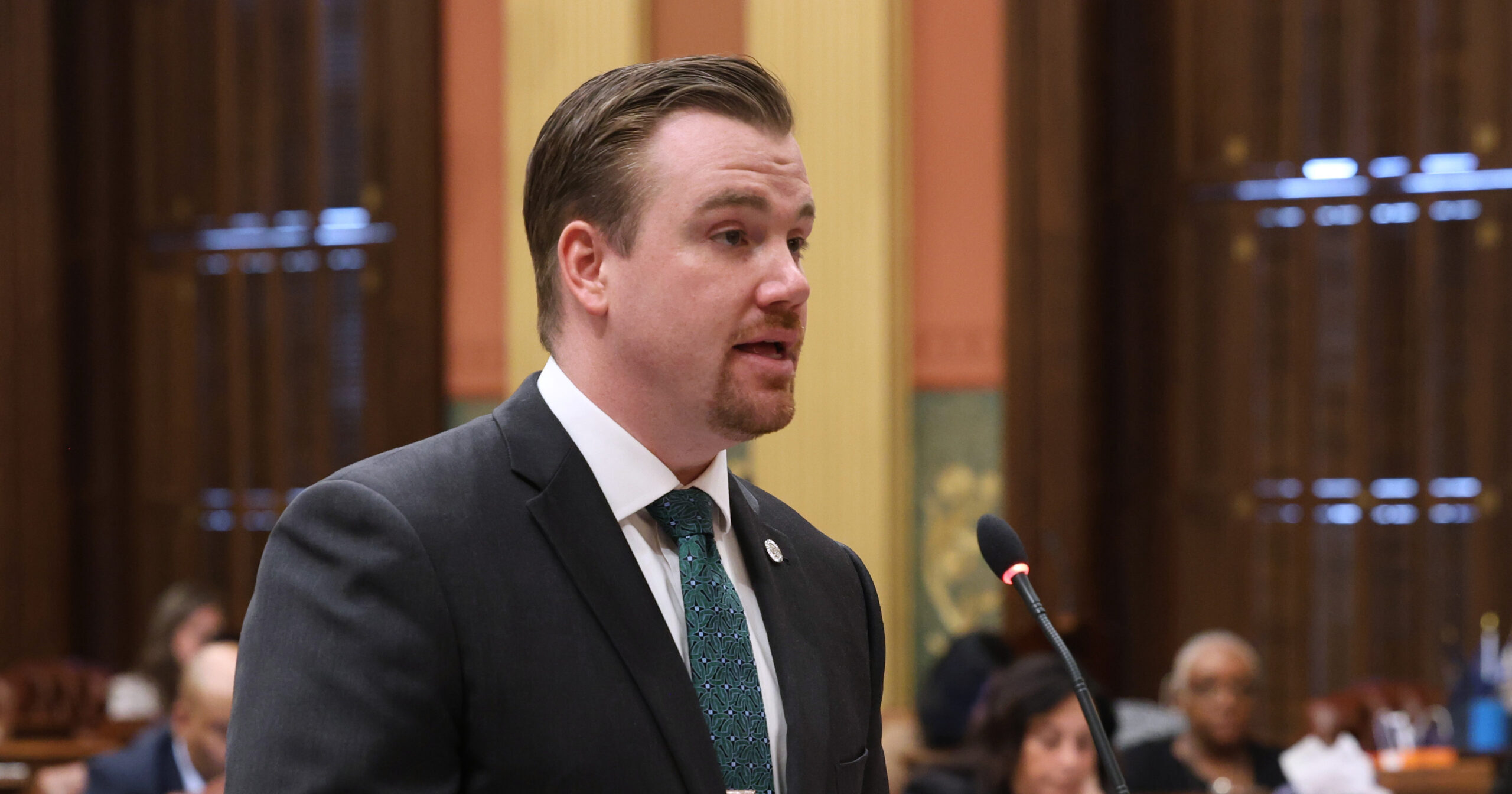From mayors to attorneys general, state and local elected leaders sent a letter to U.S. Senate leadership to sound the alarm on how the federal budget will hurt Michigan and communities nationwide
WYOMING, Mich., June 18, 2025 — Democratic Floor Leader John Fitzgerald (D-Wyoming) joined nearly 900 state and local elected officials from across the country in signing a bipartisan letter urging the U.S. Senate to reject sweeping federal budget cuts that would drastically reduce funding for Medicaid, Medicare and other essential public services. The letter, organized by the American Federation of State, County and Municipal Employees (AFSCME), outlines the serious consequences that the proposed budget bill — H.R. 1 — would have on local communities in Michigan and nationwide.
Fitzgerald and fellow signatories warn that the bill would lead to deep funding shortfalls for states and local governments, jeopardizing everything from health care and food assistance to education and public safety. The proposed cuts would also shift billions of dollars in costs onto state and local budgets, forcing difficult decisions and threatening the economic stability of entire communities.
“These proposed cuts would place an enormous burden on state and local governments, while simultaneously putting the health and well-being of our communities at serious risk,” Fitzgerald said. “In Kent County and across Michigan, families rely on Medicaid, SNAP and Medicare to access basic needs like health care, food and long-term care. Gutting these programs would be devastating not just to individuals, but also to the systems that serve them.”
According to the Congressional Budget Office, the bill would cause roughly 15 million people to lose their health coverage by 2034. Hospitals and providers would face an estimated $48 billion in uncompensated care costs as Medicaid funding dries up. Cuts to SNAP would shift $300 billion in costs to states, threatening food security for more than 40 million Americans, including for one in five children. Additionally, automatic cuts to Medicare would harm seniors and strain families who care for them.
The letter also raises concerns about new administrative requirements included in the bill. Work requirements for Medicaid recipients, for example, would add red tape and increase staffing needs for already overloaded agencies without delivering better outcomes. Similar policies implemented in other states have led to coverage losses without any meaningful increase in employment.
“These aren’t just numbers in a budget, these are real people who will feel the impact,” Fitzgerald continued. “We should be focused on strengthening public services, not tearing them down.”
Fitzgerald and fellow signers are urging Congress to abandon the current proposal and work toward a budget that protects essential programs, supports working families and invests in communities across the country.
The full text of the letter and signers can be found here.
###

